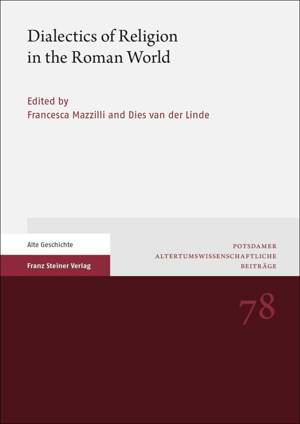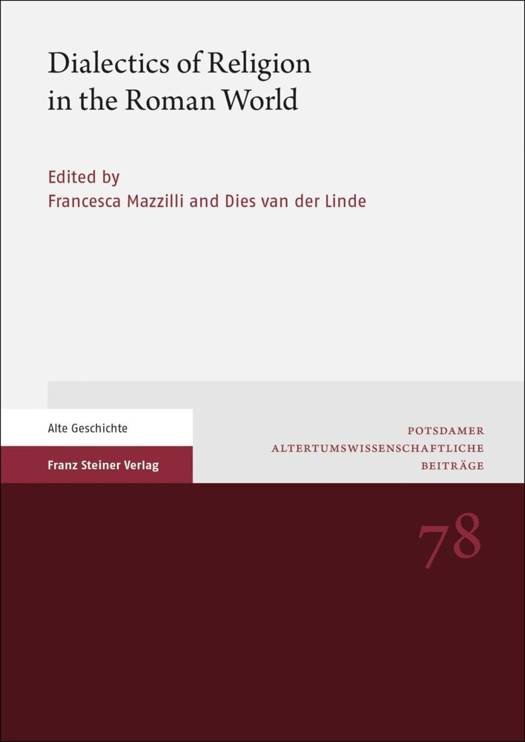
Bedankt voor het vertrouwen het afgelopen jaar! Om jou te bedanken bieden we GRATIS verzending (in België) aan op alles gedurende de hele maand januari.
- Afhalen na 1 uur in een winkel met voorraad
- In januari gratis thuislevering in België
- Ruim aanbod met 7 miljoen producten
Bedankt voor het vertrouwen het afgelopen jaar! Om jou te bedanken bieden we GRATIS verzending (in België) aan op alles gedurende de hele maand januari.
- Afhalen na 1 uur in een winkel met voorraad
- In januari gratis thuislevering in België
- Ruim aanbod met 7 miljoen producten
Zoeken
Dialectics of Religion in the Roman World
€ 167,95
+ 335 punten
Uitvoering
Omschrijving
Recent scholarship has seen a general turn from separate entities to relations and inclusivity, from static and systemic views to a focus on historical processes and fluidity. Dialectical thinking fundamentally builds on the entwinement of social interactions, inclusivity, contradictory relations, and historical movement. Yet, it is underrepresented in current research of Roman society and religion. Therefore, this volume intends to foreground dialectical thinking as a critical and constructive way to expose and analyse the dynamism, diversity, and discrepancies of religion in the Roman world. Based on critical theories and archaeological, epigraphic, and literary sources, the authors discuss cults, ranging from Mars Thincsus and Mithras to Magna Mater and the deified emperors, in diverse contexts across the Mediterranean from East to West (the Hauran, Asia Minor, Jerusalem, Dalmatia, Gaul, Britain, and Rome). Together, they give a taste of the potential of dialectical approaches for enhancing our understanding of Roman society and religion.
Specificaties
Betrokkenen
- Uitgeverij:
Inhoud
- Aantal bladzijden:
- 297
- Taal:
- Engels
- Reeks:
- Reeksnummer:
- nr. 78
Eigenschappen
- Productcode (EAN):
- 9783515130660
- Verschijningsdatum:
- 29/09/2021
- Uitvoering:
- Paperback
- Formaat:
- Trade paperback (VS)
- Afmetingen:
- 170 mm x 239 mm
- Gewicht:
- 7887 g

Alleen bij Standaard Boekhandel
+ 335 punten op je klantenkaart van Standaard Boekhandel
Beoordelingen
We publiceren alleen reviews die voldoen aan de voorwaarden voor reviews. Bekijk onze voorwaarden voor reviews.








